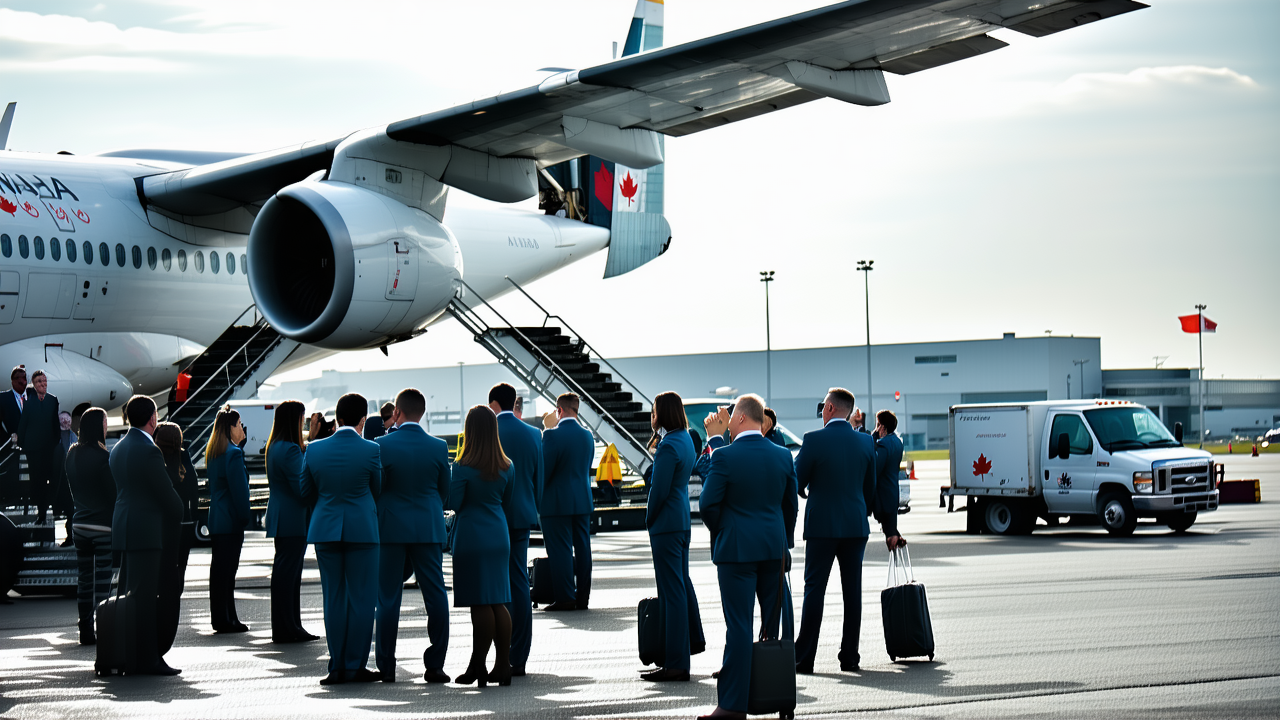Canadian Government Intervenes in Air Canada Strike, Disrupting Travel
Canadian Government Steps In to End Air Canada Strike, Disrupting Travel and Economy
OTTAWA — In a move that has sent shockwaves through the aviation sector and raised concerns about labor relations in Canada, the federal government has intervened to end a strike by Air Canada cabin crew members. The walkout, which began just after midnight on Saturday, has caused hundreds of flights to be grounded, disrupting travel plans for tens of thousands of passengers and throwing the airline’s summer operations into chaos.
The strike, which led to the complete suspension of Air Canada’s operations, has prompted the Canadian government to invoke a legal provision allowing it to halt the strike and force both the airline and the union into binding arbitration. Canada’s Minister of Employment, Workforce Development and Labour, Patty Hajdu, made the decision after emphasizing the potential negative impact on the economy and Canadian citizens. However, she warned that it may take between five to 10 days before regular flight services resume.
The Canadian Union of Public Employees (CUPE), which represents the striking workers, has refused to back down. The union has stated that its members will continue the strike until the government formally orders them to return to work. CUPE has criticized the government’s intervention as an overreach that sets a dangerous precedent for labor negotiations in Canada.
According to the union, Air Canada has not been engaging in fair negotiations. The strike is primarily driven by a wage dispute and concerns over unpaid ground work, such as tasks performed during the boarding process. While Air Canada has offered a senior flight attendant an average salary of CAD$87,000 by 2027, the union has called the offer below inflation and market value, arguing that the compensation does not reflect the current economic climate or the value of the work being performed.
The ongoing strike has added further strain to Canada’s economy, which is already grappling with the effects of the U.S. trade war and other economic challenges. Industry analysts warn that the disruption in air travel and cargo transport could have long-term implications for the country’s trade and tourism sectors.
As the dispute continues, the government’s intervention has sparked a broader debate about the balance between labor rights and economic stability. Some industry experts argue that the government’s action, while aimed at protecting the economy, could discourage future labor negotiations and lead to more frequent interventions in disputes between workers and employers.
With no resolution in sight, the situation remains tense. Air Canada has not yet commented publicly on the government’s move, but industry insiders suggest that the airline is preparing for a protracted arbitration process.
